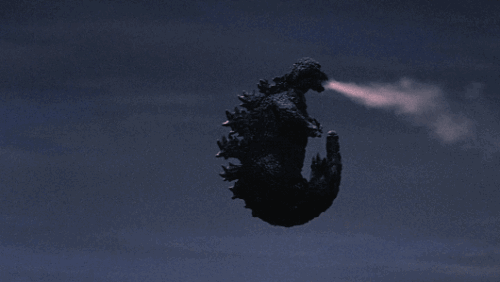The May 4th Movement was a Chinese anti-imperialist and nationalist movement that began on this day in 1919 when more than 4,000 unversity students took to the streets in protest of the Treaty of Versailles. These protests became a national and cultural movement that served as an inspiration for later left-wing movements.
On the afternoon of May 4th, over 4,000 students of Yenching University, Peking University, and other schools marched from many points to gather in front of Tiananmen. They shouted slogans as "struggle for the sovereignty externally, get rid of the national traitors at home", "do away with the Twenty-One Demands", and "don't sign the Versailles Treaty".
The next day, students in Beijing as a whole went on strike and in the larger cities across China. Students, merchants, and workers joined the protests. The demonstrators appealed to the newspapers and sent representatives to carry the word across the country. In Shanghai, a general strike of merchants and workers took place, negatively impacting the economy.
The May Fourth Movement served as an intellectual turning point in China; it was a seminal event that radicalized Chinese philosophical thought. Western-style liberal democracy had previously had a degree of traction amongst Chinese intellectuals. Still, after the Versailles Treaty (which was viewed as a betrayal of China's interests), it lost much of its attractiveness. Woodrow Wilson's Fourteen Points, despite being rooted in moralism, were also seen as Western-centric and hypocritical.
Many in the Chinese intellectual communities believed that the U.S. government had done little to convince the other nations during the Versailles negotiations to adhere to the Fourteen Points and observed that the United States had declined to join the League of Nations. As a result, they turned away from the Western liberal democratic model. The victory of the Russian October Revolution in 1917 gave direction to the development goals of the Chinese working class. Marxism began to take hold in Chinese intellectual thought, particularly among those already on the Left. During this time, that communism was studied seriously by some Chinese intellectuals such as Chen Duxiu and Li Dazhao.
In the years that followed, many Chinese political thinkers turned to leftist politics in the wake of the political upheaval of the May 4th Movement. In 1939, Mao Zedong claimed that the May Fourth Movement was a stage leading toward the fulfillment of his own communist revolution.
The May Fourth Movement twenty years ago marked a new stage in China's bourgeois-democratic revolution against imperialism and feudalism. The cultural reform movement which grew out of the May Fourth Movement was only one of the manifestations of this revolution. With the growth and development of new social forces in that period, a powerful camp made its appearance in the bourgeois-democratic revolution, a camp consisting of the working class, the student masses and the new national bourgeoisie. Around the time of the May Fourth Movement, hundreds of thousands of students courageously took their place in the van. In these respects the May Fourth Movement went a step beyond the Revolution of 1911
-- Mao Zedong
Here is a list of Trans rights organizations you can support :cat-trans:
Here are some resourses on Prison Abolition :brick-police:
Foundations of Leninism :flag-su:
:lenin-shining: :unity: :kropotkin-shining:
Anarchism and Other Essays :ancom:
Remember, sort by new you :LIB:
Yesterday’s megathread :sad-boi:
Follow the Hexbear twitter account :comrade-birdie:
THEORY; it’s good for what ails you (all kinds of tendencies inside!) :RIchard-D-Wolff:
COMMUNITY CALENDAR - AN EXPERIMENT IN PROMOTING USER ORGANIZING EFFORTS :af:
Come listen to music with your fellow Hexbears in Cy.tube :og-hex-bear:
Join the fresh and beautiful batch of new comms:
!genzedong@hexbear.net :deng-salute:
!strugglesession@hexbear.net :why-post-this:
!libre@hexbear.net :anarxi:
!shrekland@hexbear.net :what:
Next Friday 7th of May at 8 pm CST we will watch
:gamer: Gamera 3: Revenge of Iris :turtle-pogger:
on hexbear cytube :og-hex-bear:
did you missed the first and second gamera films and want to watch the 3° one? well here is the link to the first movie :president-parrot: :turtle-pogger:
and Here is the link to the 2° movie :posad: :turtle-pogger: part 1 , part 2


I remember one user that would make posts that always seemed like they were supposed to be comment replies deep into a heated argument, but no they'd just be weirdly aggressive posts arguing against people that weren't there. Always super hard to decipher and always vaguely inflammatory. I wonder if that's the same guy, pretty sure the one I'm thinking of got banned but you never know when they'll crop back up
Removed by mod
Kurtz, who’s behind the operation, says that he’s only operating his Scissor stories about extreme crimes, not the ordinary kinds of crime that most people might call modern crimes. “It’s not ordinary crimes, like murdering somebody with a knife or running a child molester down with your car, that I’m after. It’s violence committed in the modern technological age. I’m not interested in stamping out petty crimes or political crime.” But I wonder if it’s a technical issue. This guy who wants to be president? A Scissor crimes story in the August 2008 issue would have sent people into a panic. As events began to shape up, though, they didn’t. So maybe the conspiracy theorist argument is a bit of an overreaction, but it’s plausible.